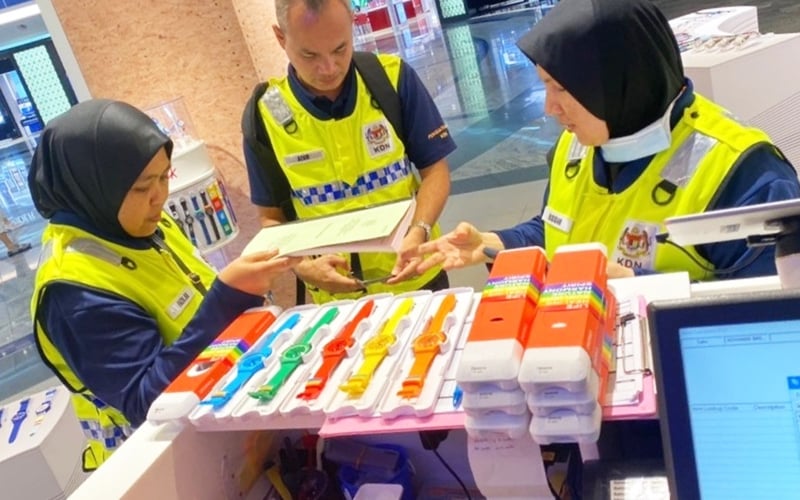
PETALING JAYA: An analyst believes Pakatan Harapan has learnt from mistakes made in its previous 22 months in power, based on recent decisions the government has made, including the raid on a brand accused of promoting LGBTQ-themed watches.
Azmi Hassan of Akademi Nusantara said the home ministry’s raid on several Swatch outlets over the brand’s “Pride Collection” showed that Putrajaya was “more conservative and was minding the sensitivities” of the Muslim majority.
The current unity government was “less progressive”, he said.
In the past, PH’s detractors would accuse the coalition of being “liberal”, a term that did not sit well with a conservative crowd, Azmi said.
“I believe, they (PH) have learnt from past mistakes, especially now that the unity government is made up of many parties that are conservative ideologically,” he told FMT.
The unity government comprises several parties and coalitions, including PH, Barisan Nasional, Gabungan Rakyat Sabah and Gabungan Parti Sarawak.
Azmi said the PH government’s push to ratify the International Convention on the Elimination of All Forms of Racial Discrimination (ICERD) drew flak from the opposition then, including Umno, the BN lynchpin.
The push to ratify the convention, which detractors argued would wipe out Malay and Bumiputera rights, and the government’s accession to the Rome Statute were among the reasons PH lost support among the Malays, he said.
Since the unity government came to power, he said, many of its decisions could be deemed “unprogressive”, including the decision against reviewing the controversial Security Offences (Special Measures) Act (Sosma).
However, DAP’s Charles Santiago said it was premature to describe PH of being less progressive, just six months after taking over Putrajaya. He said accomplishing the changes PH was pushing for would take time.
The former Klang MP said the government should be given one year or a year-and-a-half to prove itself.
He said Prime Minister Anwar Ibrahim’s recent statement that the opposition should be given space in the media was a sign of progressiveness.
“He (Anwar) told his ministers if there are criticisms (from the press) you deal with it. This is very good. If this had been done (press freedom) 15 to 20 years ago, Malaysia would be in a different place today,” Santiago said
On Sunday, Anwar called on the Malaysian media to remain independent and free from any external influence or pressure which would influence their reporting, and told the press to not “insult” the opposition or those opposed to the government, as he believed in the opposition’s right to have its voice heard.
Meanwhile, James Chin of the University of Tasmania said whether Anwar’s government would proceed with its progressive and reform agenda would be determined by the outcome of the upcoming state elections in Selangor, Negeri Sembilan, Penang, Kedah, Kelantan and Terengganu.
He believes Anwar needs to win back some Malay support in the state elections before he can start implementing actual reforms, even if the less progressive route is taken, which could disappoint the middle-class Malays who are traditional supporters of PH.
Chin said that despite the groups’ disappointment, they understood the importance of the unity government gaining Malay support in the state elections.
“I think the problem will come if, for example, Anwar, PH and Umno win the Malay seats but they still don’t do anything,” he said, referring to reforms. - FMT



No comments:
Post a Comment
Note: Only a member of this blog may post a comment.